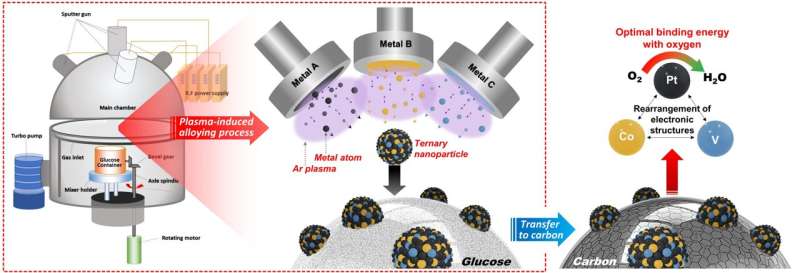Rising fuel costs are crippling Africa's economies
Sub-Saharan Africa is experiencing a record surge in fuel prices as the Russian invasion of Ukraine drives up already steep energy costs.

Gas prices have risen sharply across Africa
Chaos reigns at a petrol station in Nigeria's commercial hub, Lagos. Arguments break out and drivers blare their car horns as they wait in the long queue that spills into the road, disrupting traffic.
Motorists here, and in many of the petrol stations in Nigeria's major cities, are spending hours waiting, in the hope of filling up their tanks before fuel runs out.
"Getting petrol is like digging for gold," groans waiting motorist Joy Agbonifo. "We spend hours looking for fuel, and when we get to a [petrol] station, there's no guarantee we'll even get any."
The fuel shortage in Nigeria has lasted more than three weeks. It started after the federal government held back imports of fuel that was found to be sub-standard, causing a scarcity at filling stations.

Protests over high fuel prices are common in Nigeria
Price hikes at pumps
Numerous independent fuel stations have increased the pump price of gasoline higher than the official 165 naira per liter ($0.40, €0.36).
"Many people hoard fuel to then sell it at a higher price," Agbonifo told DW. "That's what Nigeria has become."
The situation in Nigeria is part of a global problem, said economist Abdul-Ganyu Garba from Nigeria's Ahmad Bello University in Zaria.
"There are difficulties on the supply side and demand is starting to increase," Garba said.
Global oil prices skyrocketed in 2021 following the recovery of the global economy from the COVID-19 pandemic, sparking an increase in demand for petroleum products.
On top of this, Russia's invasion of Ukraine on February 24 has triggered a global price spike over concerns of a supply crunch.

Russia is one of the world's largest oil producers
Fears of cuts to Russian oil supplies
Russia is one of the three top crude oil producers in the world, along with the US and Saudi Arabia. Although sanctions on Russia don't directly target the country's oil exports, the global oil market is rattled by fears that Russia's oil production could be throttled.
Crude oil prices breached the $100 per barrel mark for the first time since 2014 on Tuesday.
Members of the International Energy Agency, which includes the world's biggest oil producer, the United States, agreed on Tuesday to release 60 million barrels of crude from their reserves.
So far, this has failed to quell the sharp price increases.
Nigeria's idle refineries
African countries are suffering high fuel prices and shortages as a result.
Ironically, this is a recurring problem for Nigeria, Africa's biggest exporter of crude oil. Despite its massive oil sector, Nigeria imports almost all of its petroleum products, partly because none of the country's four refineries work. Combined, these refineries would have a capacity of 445,000 barrels a day. Authorities blame mismanagement and corruption.

Nigeria fails to refine most of its crude oil, meaning it has to pay more to import oil than it receives for the sales of crude
Resource rich countries in sub-Saharan Africa haven't managed their raw material resources to become self-sufficient, economist Garba says.
Nigeria actually guarantees its citizens some of the cheapest fuel on the continent. Oil producing nations Angola ($0.30) and Chad ($0.90) also guarantee minimum fuel prices but this generosity is proving costly as the price of imported crude rises.
High petrol prices across the continent
The battle for petrol is not limited to Nigeria.
Across Africa, fuel prices have reached all-time highs. In Burkina Faso fuel prices rose by 8%. South Africa's national statistics institute said fuel prices in December 2021 had risen by 40,5% compared to the previous year.
In January, Burundi's government raised fuel prices by almost 13%, which Aloys Bakicako, leader of the opposition party Rassemblement National pour le Change called a "historic increase."
Burundians fear new hikes when buying imported food, which are pegged to fuel prices. After the Central African Republic, Zimbabwe and Senegal, Burundi is the most expensive African country for buying a liter of petrol.
Burundi's Energy Ministry blames the steady escalation of international oil prices, and repeated its pledge to keep the whole country supplied with fuel.
But transport costs have risen.

Fuel shortages are common in many Africa nations, causing motorists to spend hours in line waiting for gas
High fuel prices hitting everyday consumers
Burundian Innocent Irambona, who normally takes a taxi to work, complains that that option has now become unaffordable.
"Where I used to pay 2,000 Burundian francs, I now pay 3,000. Also, many taxi services are not working because of the fuel shortage. Paying higher prices is hard when our wages don't increase," Irambona said.
Across the border in the Democratic Republic of the Congo, the price of petrol has risen by 3,000 Congolese francs ($1,50), a record.
The Congolese Ministry of Hydrocarbons says the petroleum logistics company SEP Congo, which is responsible for transporting and storing petroleum products, is struggling with technical problems.
Rising fuel prices are hitting Africans hard at a time when the prices of basic foods have also risen dramatically.
Angry Kenyans recently took to social media using the #lowerfoodprices to protest the soaring cost of food, electricity, and fuel.
The Kenyan government, under pressure from the International Monetary Fund (IMF) to raise more revenue, had raised taxes on household goods such as cooking gas, fuel, and food by 14%.
In Togo and Ivory Coast, food prices have also nearly doubled.
























